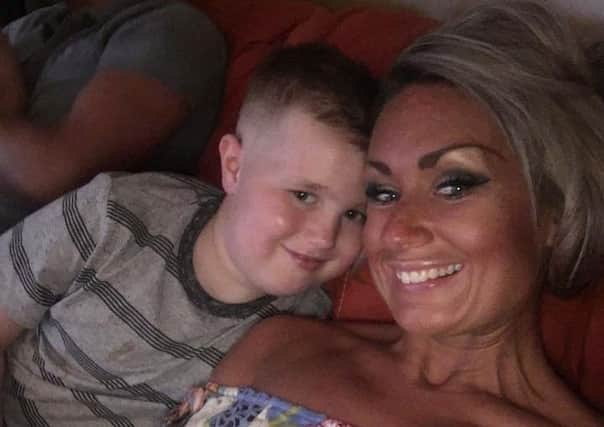Terminally-ill young Scot '˜improves' following Mexican treatment


Jennifer Ure Stewart and her husband Mark travelled to the Monterrey Vale Oriente hospital with their three boys including eldest child Luke, aged seven, who is suffering from a rare aggressive brain tumour.
The family from Tranent, have raised an incredible £170,000 thanks to the efforts of the local community in East Lothian but desperately need to hit their target of at least £350,000 as their money will run out in November.
Advertisement
Hide AdAdvertisement
Hide AdLuke is now past the six-month life expectancy he was given in January after he was diagnosed with the Diffuse Intrinsic Pontine Giloma (DIPG) tumour.
Medical experts say that only around 10 per cent of children with this type of illness survive longer than two years.
But Luke has beaten the odds so far and has undergone his fourth course of intra-arterial (IA) chemotherapy treatment and a second round of Immunotherapy.
The intra-arterial procedures last around three hours, including an MRI scan with drugs being administered through the basilar and femolar arteries.
The family, including Luke’s brothers Lewis, aged five and 20-month-old Lochlin, have now been in the country nearly two months and Luke’s quality of life seems to have returned.
Jennifer Ure Stewart said: “Luke’s tumour has shrunk about 40 per cent.
“The doctors can’t tell us how long they think Luke will live, for they are hoping with this treatment forever, but we don’t know, already he is at least past the six-month diagnosis.”
However, Dr Kieran Breen of the charity Brain Tumour Research, said the Mexican treatment was lacking in evidence.
Advertisement
Hide AdAdvertisement
Hide AdHe said: “DIPG is a devastating condition and it is unfortunate that untested therapies are offering false hope to people.
“The therapy that is being offered in Mexico has not been tested and there is no evidence that it is effective.